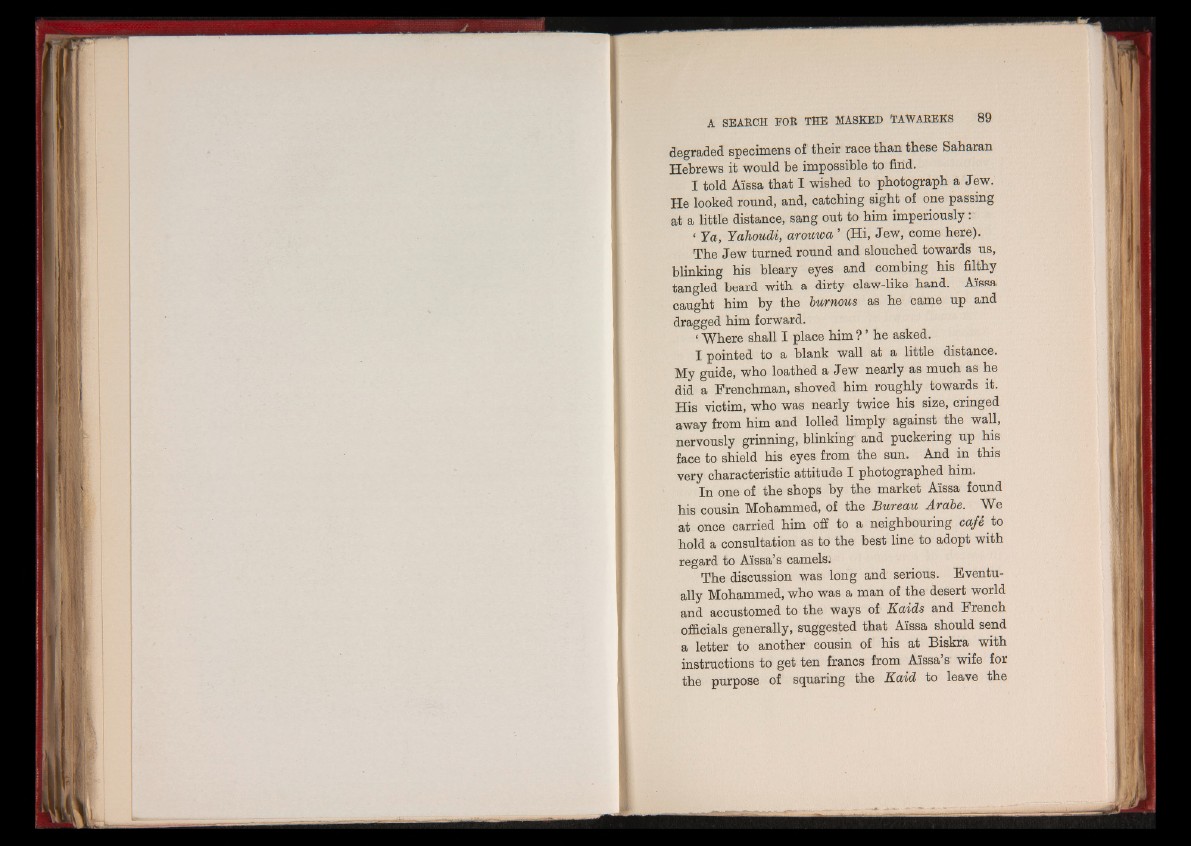
'
ill
degraded specimens of their race than these Saharan
Hebrews it would be impossible to find.
I told Aissa that I wished to photograph a Jew.
He looked round, and, catching sight of one passing
at a little distance, sang out to him imperiously :
* Ya, Yahoudi, arouwa ’ (Hi, Jew, come here).
The Jew turned round and slouched towards us,
blinking his bleary eyes and combing his filthy
tangled beard with a dirty claw-like hand. Aissa
caught Bim by the humous as he came up and
dragged him forward.
‘ Where shall I place him ? ’ he asked.
I pointed to a blank wall at a little distance.
My guide, who loathed a Jew nearly as much as he
did a Frenchman, shoved him roughly towards it.
His victim, who was nearly twice his size, cringed
away from him and lolled limply against the wall,
nervously grinning, blinking and puckering up his
face to shield his eyes from the sun. And in this
very characteristic attitude I photographed him.
In one of the shops by the market Axssa found
his cousin Mohammed, of the Bureau Arabe. We
at once carried him off to a neighbouring cafe to
hold a consultation as to the best line to adopt with
regard to Axssa’s camels)
The discussion was long and serious. Eventually
Mohammed, who was a man of the desert world
and accustomed to the ways of Kaids and French
officials generally, suggested that Aissa should send
a letter to another cousin of his at Biskra with
instructions to get ten francs from Aissa’s wife for
the purpose of squaring the Kaid to leave the